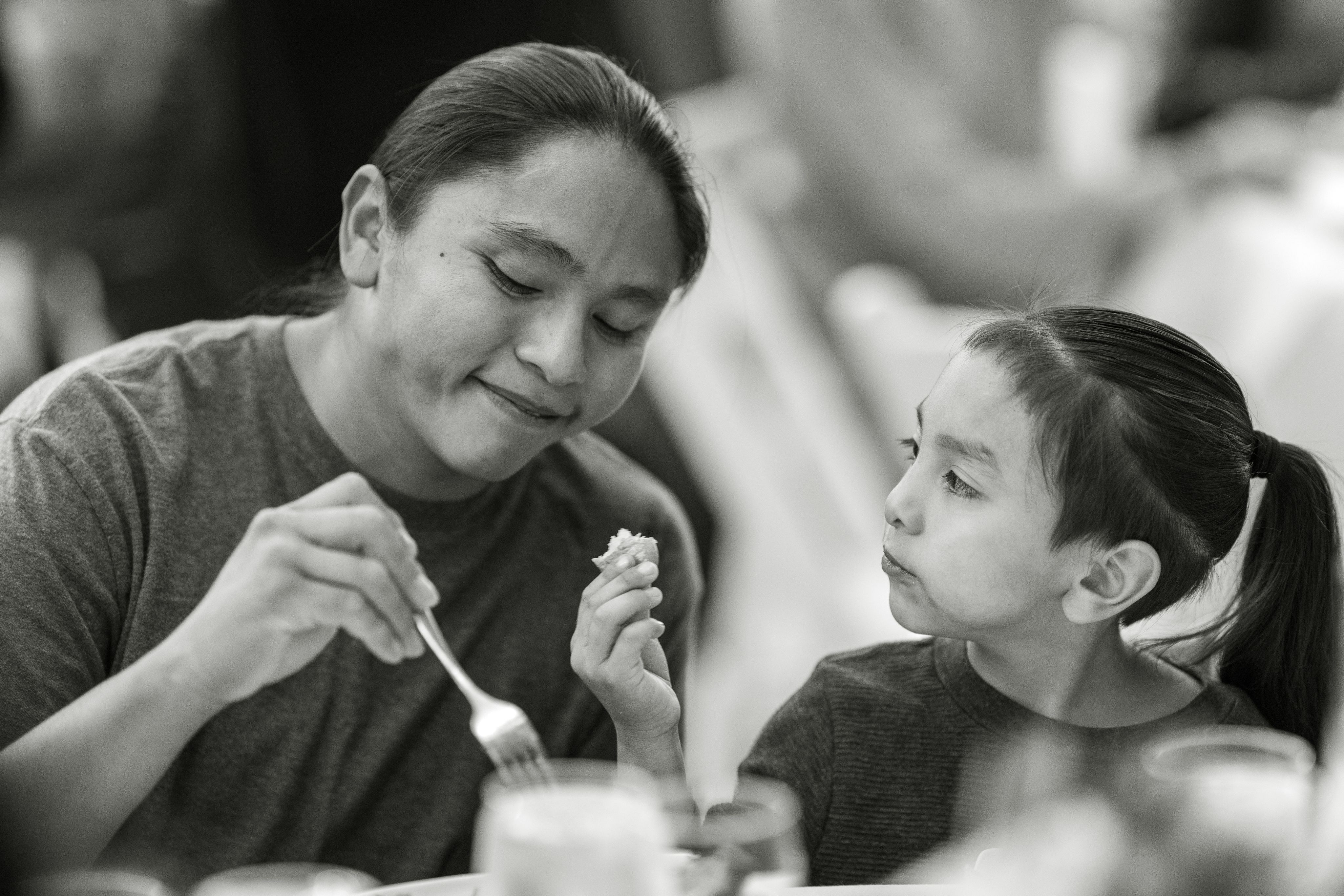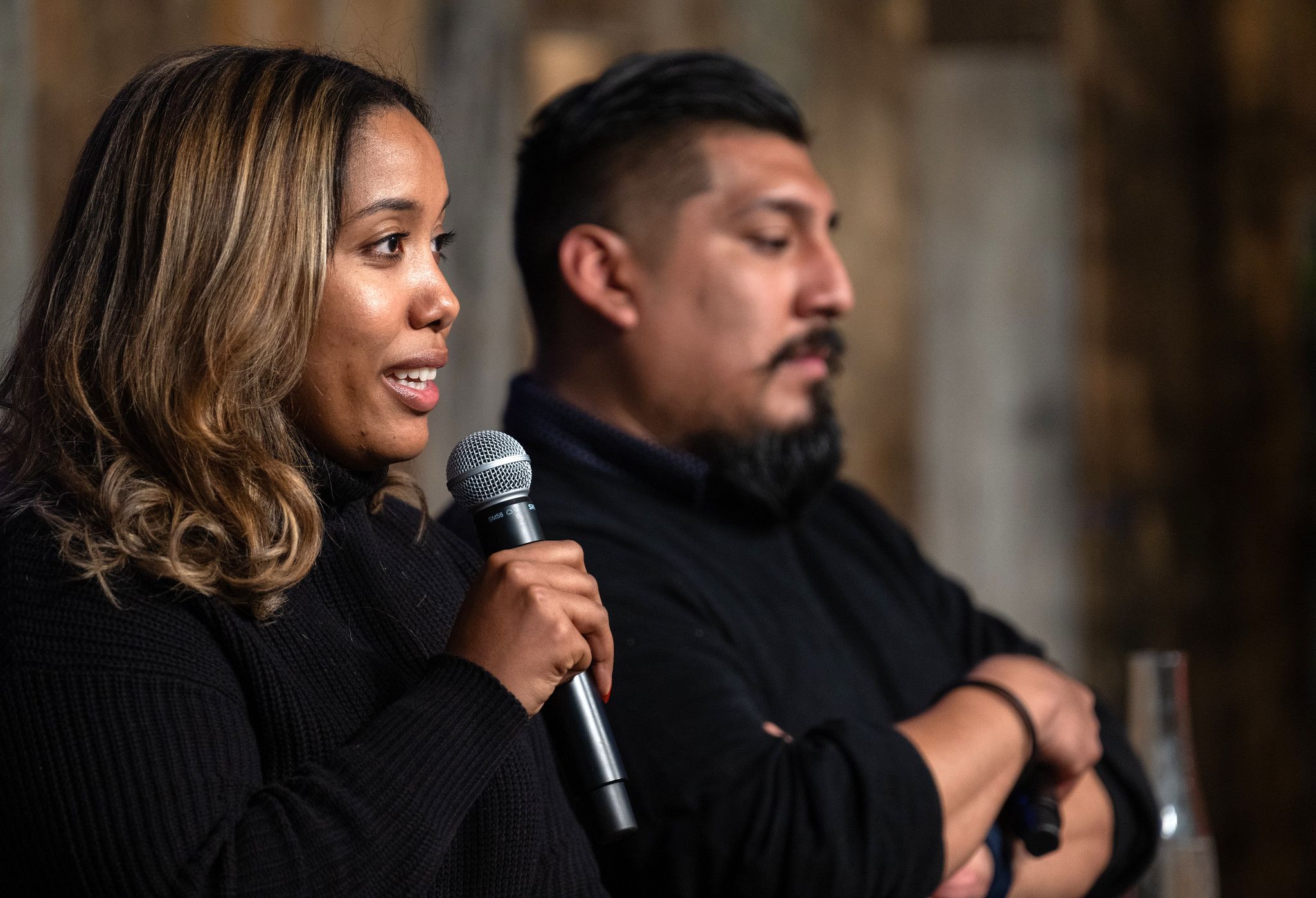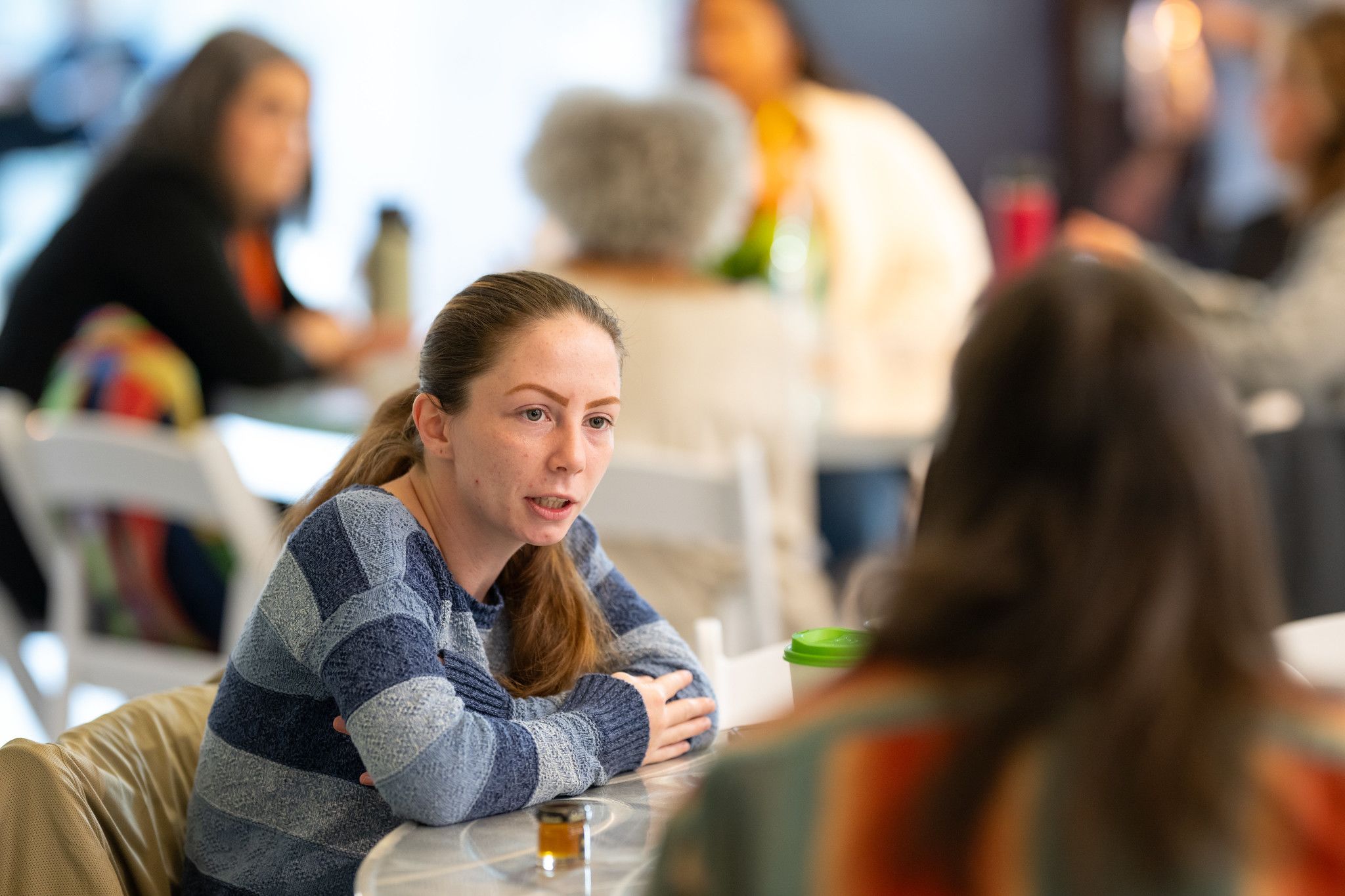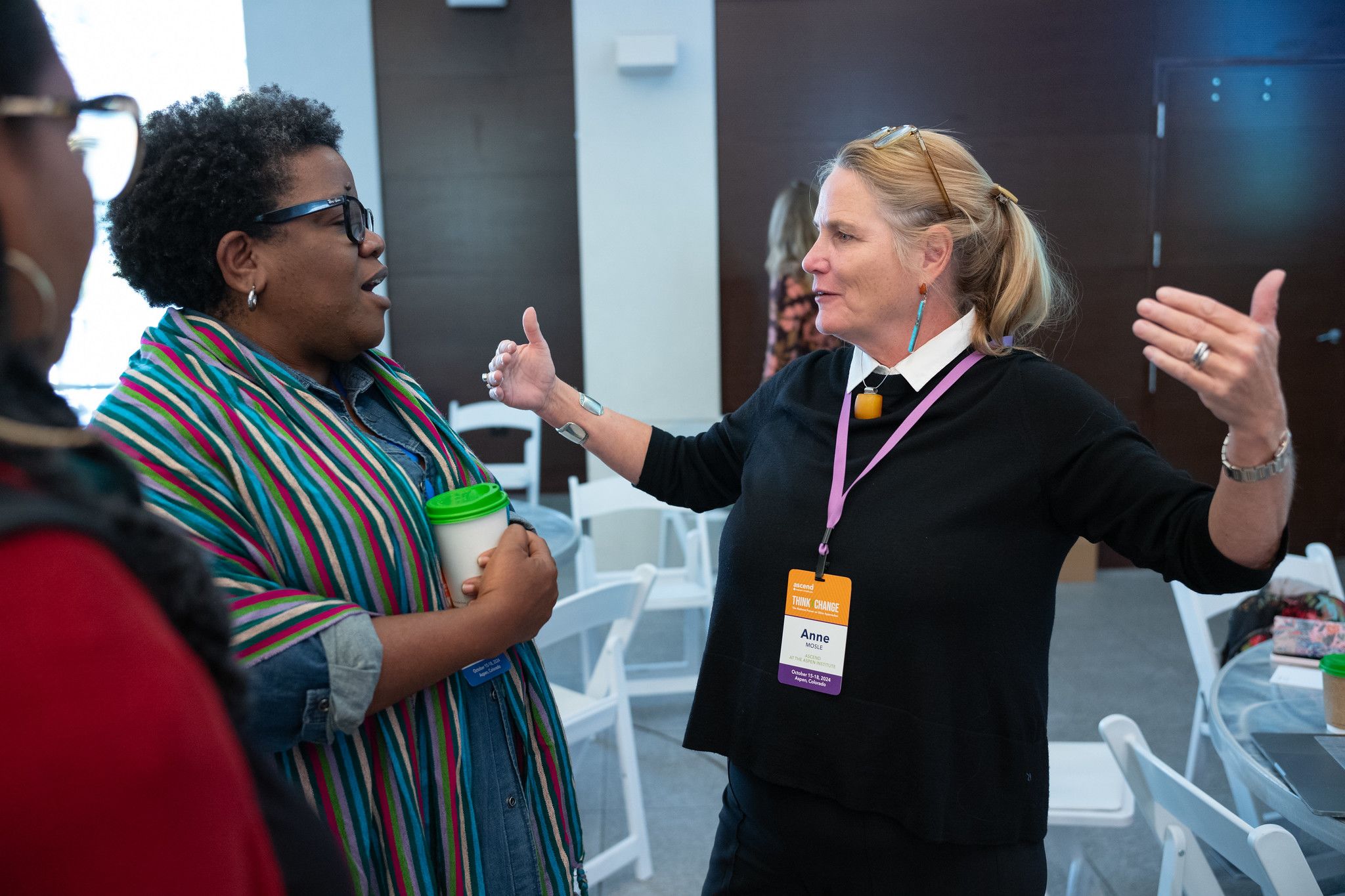Full Dreams Ahead
In October, more than 200 leaders gathered in Aspen for ThinkXChange, bringing to light modern best practices for 2Gen approaches.

At the fifth national Aspen ThinkXChange: The National Forum on 2Gen Approaches last October, we brought together more than 200 practice, policy, parent, research and philanthropy leaders in the two-generation (2Gen) field to learn from each other and deepen our collective impact for children and their families. Central to this convening was the 2Gen Accelerator Community.
Each of the 15 Accelerator Community members were carefully selected from our Ascend Network and awarded up $170,000 each – totaling more than $2.5 million – by the Robert Wood Johnson Foundation; Harry and Jeanette Weinberg Foundation; Kresge Foundation; Conrad N. Hilton Foundation; William J. and Dorothy K. O’Neill Foundation; and Kini Fund to document their best practice or program with opportunities to influence systems change and transform policies for families with low incomes.
While their 2Gen approaches range from expanding access to child care in partnership with workforce programs for parents, to harnessing insights from guaranteed basic income programs for improved benefits systems, all 15 Accelerator Community partners prioritize the power of lived experience. “They flipped the script, and they prove that listening to and operationalizing what families share and know leads to better results,” said Sarah Haight, director of 2Gen practice at Ascend.
Idea: Assets are more than a savings account
The lives of parents and children can be transformed by securing assets that lead to greater economic stability, including stable housing and savings accounts. But too often, families must navigate complex and disjointed systems one at a time to access asset-building resources like early childhood education, health care, and employment services. At ThinkXChange, organizations highlighted the importance of reimagining systems to make asset-building possible for more families.

Idea in Action
In Greater Boston, 7,600 children are homeless on a given evening. FamilyAid, which serves families experiencing homelessness in the region, is building new cross-sector collaborations to improve services for children and their caregivers experiencing homelessness. The organization is helping families access multiple services at once, including immediate housing as well as medical and mental health support, through CHIME (Child Homelessness Intercept Mapping and Engagement). CHIME brings together the children’s hospital, school system, United Way, and trial courts to identify benchmarks of success for families including, and especially, asset-building, which is often deprioritized for families in crisis.
Recognizing that families have agency, and the importance of building economic stability while moving out of crisis, was key to FamilyAid Case Manager Mistral Olaverria’s experience at the organization.
“My mother was homeless. She didn’t know where to go. Then a friend told her, ‘Go across the street from South Station. There’s an agency there that’s able to help you,’”said Mistral at ThinkXChange. “That agency was called Travelers’ Aid agency — which is now known as FamilyAid — the agency that I’m working for,” she said. Mistral often shares her story with families because she is a walking representation that through services like FamilyAid, children experiencing homelessness can achieve stability and become healthy adults.

Idea: Bring postsecondary education and child care together
By combining the powerful supports of child care and postsecondary education, parents can fulfill their aspirations for education that leads to better jobs, while their children receive high-quality care. This integration strengthens the mutual motivation — when parents reinforce their children’s learning, and children motivate their parents’ pursuit of credit completion.

Idea in Action
Developing a holistic support system can be especially impactful for parents who are justice-involved and may have spent significant time separated from their children.
As a 20-year-old pregnant single mom of two, Desiree Thornton discovered UTEC, an organization that helps young adults, more than half of whom are parents, trade poverty and violence for economic mobility. Through UTEC’s 2Gen Center, Desiree accessed child care so she could focus on her own personal growth, including building skills that will lead to greater stability. “Once I made my way to the workforce program, I started out doing woodworking, where I learned more of a sense of work ethic while also learning how to correct my own mistakes while holding my head up high,” she said.
Building on lessons from its 2Gen Center, UTEC designed a robust policy and advocacy agenda, resulting in the country’s first “behind the walls” fatherhood center within a state prison. Young fathers account for a quarter of Massachusetts’ young incarcerated population, and through the prison parenting strategy, young fathers can stay engaged in their children’s lives with increased visits and access, resulting in strong relationships upon release. By co-locating and integrating child care and workforce services for recently justice-involved parents, UTEC is making it easier for families to build skills, strengthen connection, and spend more time together.

Idea: Make 2Gen a culture change in human services
Communities thrive when 2Gen approaches build equity through evidence-based practices, and human service organizations can scale successful models to improve family economic mobility. To do so, traditional organizational culture needs to focus on a human-centered approach instead of checking boxes.

Idea in Action
LIFT is a national organization that invests in parents to reverse unjust systems that block and strip wealth from communities of color. LIFT aims to shift organizational culture from compliance-driven case management to family-driven economic mobility coaching through technical assistance partnerships with large-scale social service providers.
At ThinkXChange, LIFT CEO Michelle Rhone-Collins focused on thinking big in the face of stark statistics on poverty. In a survey, LIFT asked parents about their well-being and saw double the rates of anxiety and depression among parents living in poverty. “There’s a cognitive load that comes with living in poverty,” she said. “But service providers can change lives by seeing beyond the crisis into the space of opportunity.” In transforming organizational cultures, LIFT is dismantling systemic inequities, and by codifying its work, more families will achieve financial strength.
Ascend Parent Advisor Shenett Joesph, who works as a home health aide, has felt LIFT’s impact on her family: “I always uplift and commend myself for being the amazing mom that I knew I was cut out to be.”

